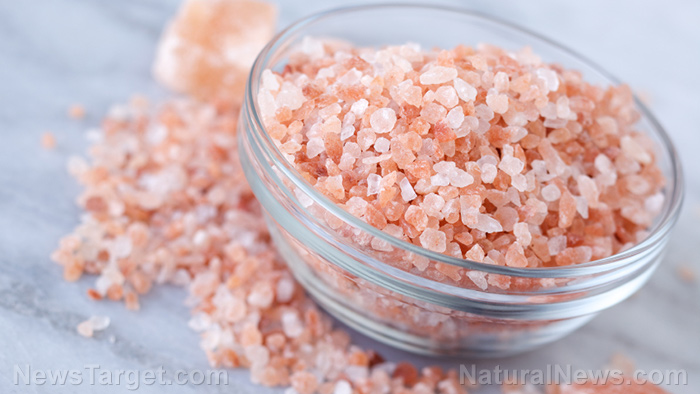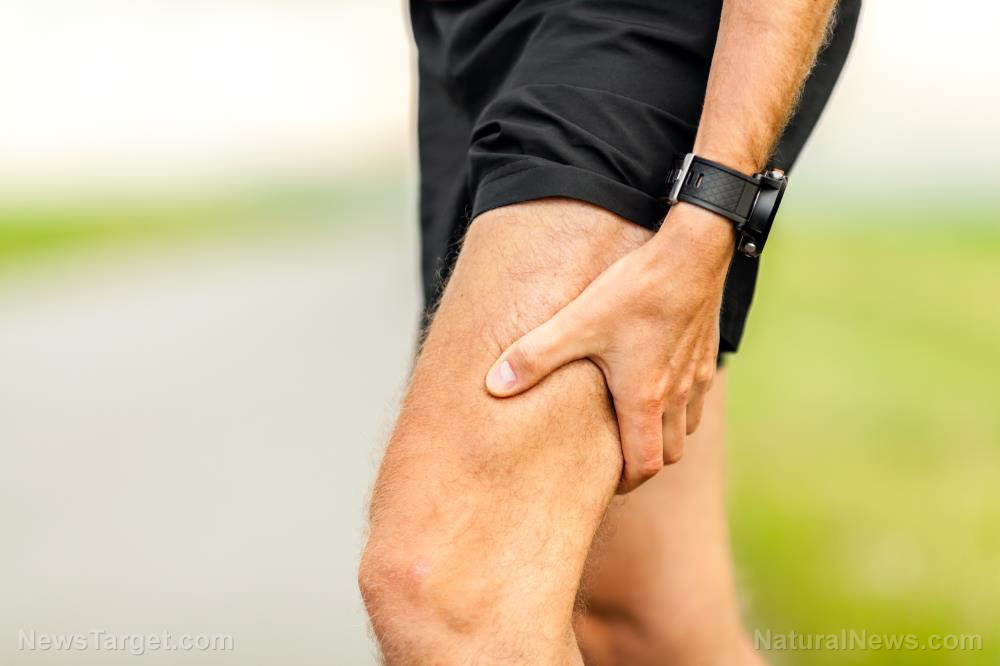Natural soy supplement outperforms drugs for preventing bone loss in post-menopausal women
05/03/2018 / By Zoey Sky

Did you know that a nutrient that can benefit millions of women in the U.S. can be found in soybeans?
To date, at least 40 million women in the country aged 51 and above are thinking of undergoing hormone replacement therapy (HRT) to address menopausal symptoms. However, HRT comes with various health risks.
The pill-based solution and genistein
Most people are under the false belief that there’s nothing wrong with receiving a prescription for every little ailment they may have, even if they’re completely fine. Worse, most people are unaware that there are natural remedies for most of the health concerns that they may have.
Over 50 percent of all Caucasian women 50 years old and above are estimated to have low bone mass. This means that while their bones are getting weaker, they don’t have osteoporosis yet, per the National Osteoporosis Foundation. By the early 1990s, doctors who gathered at the World Health Organization (WHO) were tasked with diagnosing the condition that these women had. They eventually decided on osteopenia, the condition used to describe the precursor to osteoporosis.
All women, even healthy individuals, will eventually lose bone density as they age. But this natural process has been grossly over-medicalized.
At least 50 percent of postmenopausal white women, and 35 percent of black women in the same age bracket, fall in the diagnostic category of osteopenia. Big pharma has taken advantage of this fact and turned this normal and “symptomless state” into a “disease” by implying that the natural thinning of bone that comes with age is a disease that must be feared.
Ten years after the diagnosis osteopenia was coined, various bone-density drugs had come onto the market. Aside from Fosamax and Evista, more women started using estrogen and other hormone replacement drugs to battle bone loss.
However, science proved the dangers that accompanied the use of synthetic hormones, causing the decline in the popularity of HRT as a preventative treatment. Merck Pharmaceutical received several lawsuits for Fosamax (alendronate) due to complications from use like “frozen bone” syndrome that makes bones snap in half, as if frozen solid, and “dead jaw” syndrome where infection makes the bones of the jaw crumble, among other risks that came with the use of bone-density drugs and hormones.
Studies then proved that these dangerous drugs were actually bone-hardeners and not bone-builders. Bone-hardeners, also called bisphosphonates, are a class of drugs linked to more than 40 negative health effects. These drugs were connected to risks that were pronounced for long-term use such as ten years or more.
But nature had an effective solution all along: a plant-based solution called genistein.
Genistein is an isoflavone, or a bioactive flavonoid often found in beans like coffee, fava, garbanzos, and soy. This isoflavone is a phytoestrogen that has a similar structure to human estrogen. (Related: Should you consume soy products?)
One natural way to ease the symptoms of menopause is to follow a diet full of phytoestrogens, which can also have “preventative or therapeutic effects against cancer, atherosclerosis, and osteoporosis.”
Out of all the isoflavones, genistein has the most potent estrogenic activity. It is a plant derivative that can naturally strengthen any weakness without harming other parts of the body. Genistein, unlike prescription drugs made from biologically-foreign chemicals, or xenobiotics, doesn’t cause any severe and unintended negative health concerns like bone fractures.
Research has determined that genistein has a potential therapeutic role in osteoporosis prevention and treatment. The isoflavone can even be used to address various other health conditions.
Genistein has a highly selective activity that can bind and stimulate bone estrogen receptor sites, which then boosts bone strength and density.
Even though genistein has a much weaker estrogenic activity unlike estradiol, the former can bind to the same estrogen receptors for a longer time. This can produce greater and longer-term positive effects without the risks linked to high estrogen levels. Through genistein’s bond with estrogen receptors, individuals gain protection against cancer that may grow when estrogen is unable to bind.
Genistein is also a potent antioxidant, and regular consumption of genistein can help eliminate hazardous free radicals from the bloodstream to slow down the aging process. Studies even show that genistein can help lower blood pressure and strengthen the arterial walls, proving that genistein also has cardioprotective properties.
Genistein and bone health
Instead of drugs and hormones, a more effective way of boosting bone strength is through natural, food-based alternatives. Fermented soy, the “most potent form of food-based genistein,” is one such healing food that has been used throughout the years to improve bone health.
Based on study results, genistein is primarily absorbed in the gastrointestinal (GI) tract. In the GI tract, genistein is metabolized throughout the body, making food rich in the isoflavone the best way to obtain more of this vital nutrient.
Foods rich in genistein include:
- Miso – Miso is a fermented soybean paste used to make miso soup. Soy miso is full of copper, manganese, and zinc, three important mineral antioxidants.
- Natto – A traditional Japanese food, natto is made by cooking fermented soybeans. It can help destroy blood clots and improve blood flow.
- Tempeh – A fermented soybean cake that has a firm texture and nutty taste, vegans and vegetarians often consume tempeh because it is rich in protein.
When buying soy foods and drinks, always purchase natural products made from fermented soy.
Remember, when it comes to prevention, natural food-based alternatives are a better option, unlike various drugs that often come with various health risks.
You can learn more about the benefits of fermented soy, genistein, and other natural cures by heading to Cures.news.
Sources include:
Tagged Under: alendronate, Big Pharma, bisphosphonates, bone fracture, bone loss, Bones, drug over-prescriptions, drugs, estradiol, estrogen, Evista, fermented soy, Fosamax, Genistein, harmful drugs, hormone replacement theraphy, HRT, isoflavone, longevity, natural remedies, natural soy supplement, osteopenia, osteoporosis, over-prescriptions, phytoestrogen, raloxifene, soy, soy beans, soy supplement, Soybeans, women's health




















